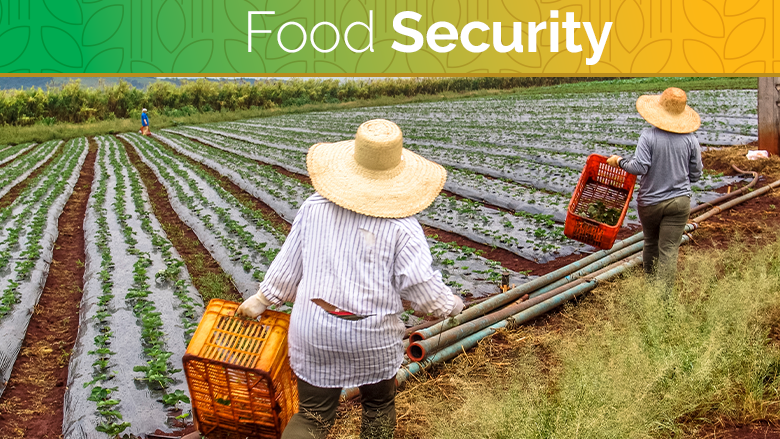
Future Food Security of Bangladesh – A Brief Review
Predicting the future of agriculture and food security in
Bangladesh involves considering a variety of factors such as technological
advancements, climate change impacts, policy decisions, economic developments,
and social trends. Some general trends and potential directions for the future
of agriculture and food security in Bangladesh.
Climate Change Adaptation: Bangladesh is highly
vulnerable to the impacts of climate change, including increased flooding,
cyclones, and rising sea levels. Future agriculture in Bangladesh will likely
need to focus on adapting to these challenges, such as by developing
flood-resistant and drought-tolerant crop varieties, improving water management
techniques, and implementing sustainable farming practices.
Technology Adoption: Technology, including precision
agriculture, drones, remote sensing, and data analytics, can play a significant
role in enhancing agricultural productivity. Adoption of such technologies
could help farmers optimize resource use, monitor crops more effectively, and
make informed decisions to increase yields.
Crop Diversity and Resilience: To ensure food
security, there might be a shift towards cultivating a diverse range of crops
that are well-suited to the changing climate and capable of withstanding
different stressors. Crop diversification can also help reduce the risks
associated with relying heavily on a few staple crops.
Urban Agriculture and Vertical Farming: As
urbanization continues, there could be an increase in urban agriculture
initiatives and vertical farming. These practices can help produce food
locally, reduce transportation costs, and make efficient use of limited space.
Sustainable Farming Practices: Sustainable
agriculture practices, such as agroforestry, organic farming, and integrated
pest management, are likely to gain prominence. These practices can help
maintain soil health, conserve water resources, and reduce the environmental
impact of agriculture.
Value Chain Enhancement: Improvements in the entire
agricultural value chain, from production to processing, storage,
transportation, and marketing, can contribute to food security. Better
infrastructure and logistics can reduce post-harvest losses and ensure that
more produce reaches consumers.
Policy Support: Government policies will play a
crucial role in shaping the future of agriculture and food security. Policies
that support research and development, provide access to credit and markets for
farmers, and promote sustainable practices can have a positive impact.
Rural-Urban Migration and Labor Availability: Changes
in demographics, including rural-urban migration, can impact agricultural labor
availability. Mechanization and labor-saving technologies might become more
essential as the availability of traditional agricultural labor decreases.
Nutrition Focus: Food security isn't just about
having enough calories; it's also about having access to nutritious foods.
There could be a growing emphasis on improving the nutritional quality of diets
by promoting the production and consumption of diverse and nutrient-rich foods.
International Trade and Collaboration: Bangladesh
might continue to engage in international trade for food security, both by
exporting its agricultural products and by importing goods that are not easily
producible domestically. Collaboration with international organizations and
neighboring countries can provide valuable knowledge and resources.
These are general trends and possibilities, and the actual
future will be shaped by a complex interplay of various factors. Adaptation and
innovation will be key for Bangladesh to address the challenges and
opportunities in its agricultural and food security landscape.
Share this page via
More from Kazi Farhed Iqubal


